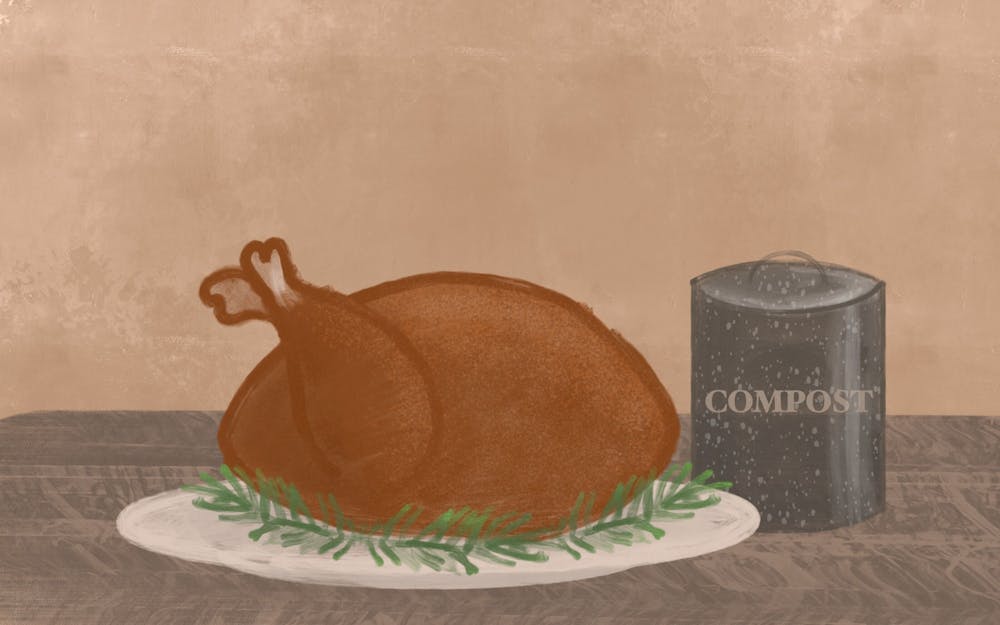I first learned about composting from my dad. One day, there was this small, metal canister sitting on the kitchen counter, and my siblings and I were told that by putting food scraps into this bin, it would break down into nutrients to help my dad's garden grow.
At first, I found it a little strange to put apple cores into this metal canister, leaving it to sit instead of throwing it in the trash. I wasn’t sure if it would make the house smell, or worse, bring a ton of flies into the kitchen, where I ate breakfast every morning. But little did I know, the canister was built for keeping those bad smells from spreading throughout the room and, therefore, kept flies from it.
Eventually, the food would compost enough, and it would be dumped into a bigger bin out by his garden. There, it would sit for a few more days and eventually look like your regular dirt, which he would spread amongst his flowers and other various plants.
[Related: OPINION: Pumpkin pie is political: the politics of food]
Not only is composting a way to increase how many nutrients a garden gets, it also decreases the amount of waste a household contributes to landfills. By discarding food scraps somewhere they can be reused, less waste will contribute to slight decreases in the impact of climate change.
Products that can be composted include fruits and vegetables, crushed eggshells and coffee grounds with the filter. It’s a small step in creating a better environment starting in your own kitchen instead of contributing to increasing landfill waste.
Researchers from Colorado University have found that landfills release methane gas at extremely high rates. Methane gas is able to trap heat in the atmosphere, contributing to climate change. Not only is this a problem, but oftentimes landfills lead to the killing of wildlife habitats. It was also reported that over 600 acres is the average landfill size. With there being 3,000 active landfills within the U.S., 1.8 million acres of habitat have been lost.
Much of these landfills are full of compostable goods as well. In 2018, California by itself disposed around 39 million tons of waste, of which approximately one-third is compostable organic materials. One-third is equal to 13 million tons of compostable goods which could have, instead, been returned back to the earth as nutrient rich soil.
[Related: OPINION: How capitalism is driving the climate crisis]
It’s true that big corporations contribute more to climate change than households such as yours and mine. So taking on improving the environment can seem daunting if companies continue in their harmful climate actions. However, by taking personal action in helping the environment, little by little the earth's climate can improve.
My dad's backyard is just one example of a household decreasing its waste. In reality, it comes down to a united fight for the environment and bringing its need to the attention of the big corporations.
So, before gathering with families and friends this Thanksgiving, consider investing in a compost bin to put on the kitchen counter. Instead of throwing peeled potato and chopped carrot scraps into the trash, you could instead reuse its nutrients to create a healthier garden and environment as a whole.
Carolyn Marshall (she/her) is a sophomore majoring in media studies focusing in TV, film and digital production with a minor in English.




